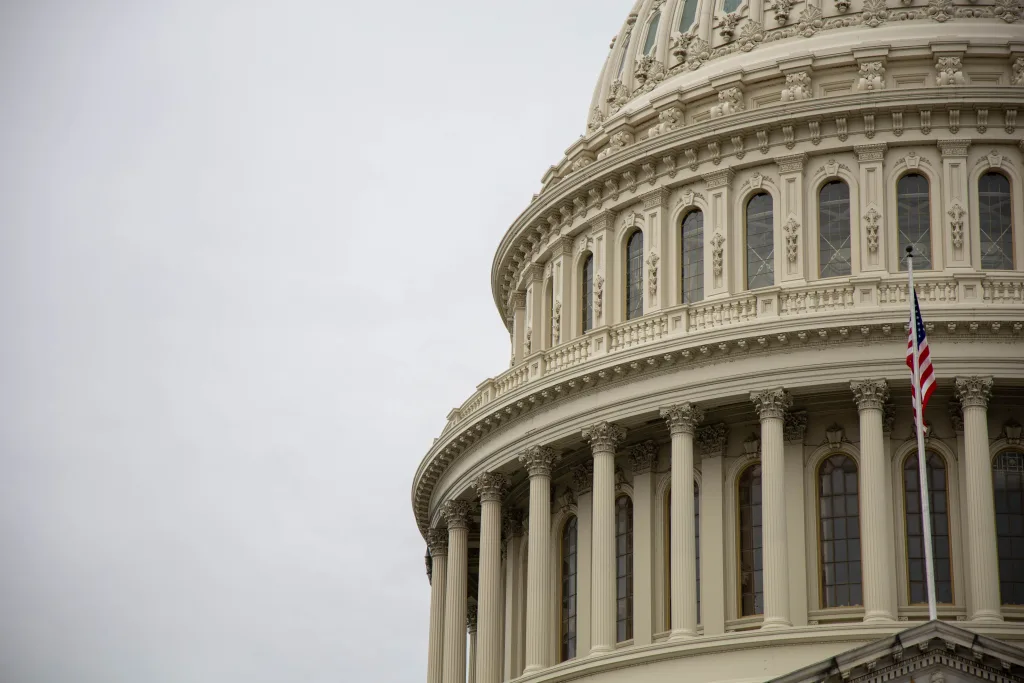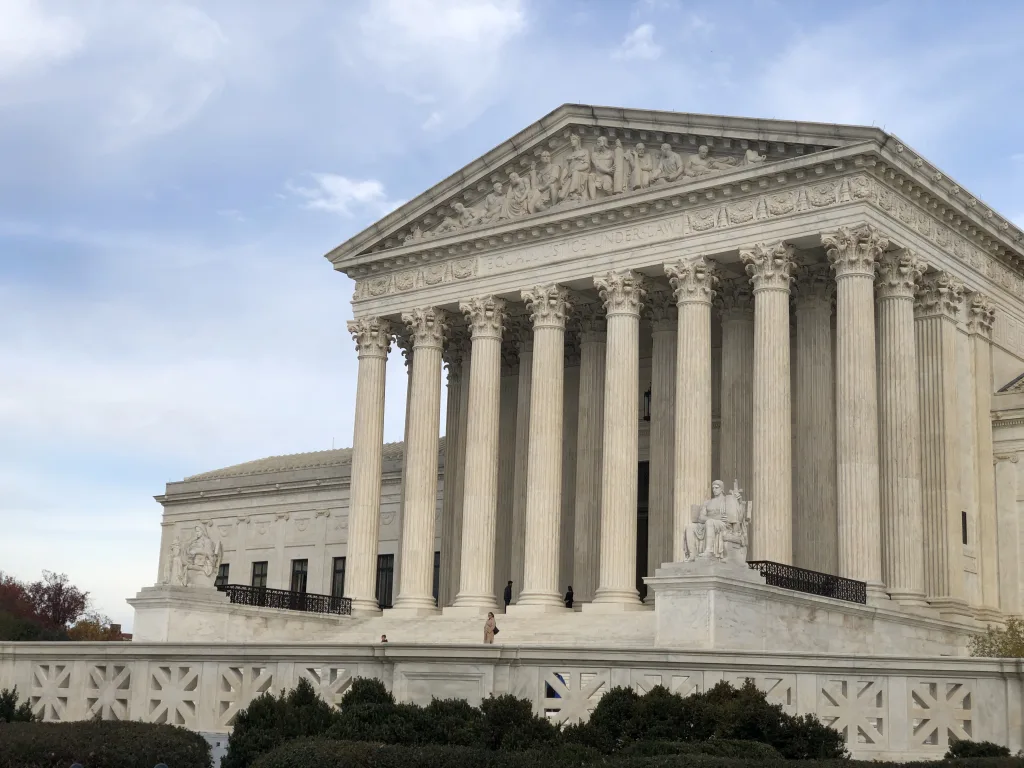The Eighth Amendment of the United States Constitution is a crucial provision that protects individuals from excessive bail, excessive fines, and cruel and unusual punishments. It serves as a fundamental safeguard of the rights of an accused person, both before and after a trial.
The first clause of the Eighth Amendment addresses the issue of excessive bail. Bail is the amount of money or property that a defendant must provide to the court as a guarantee of their appearance for trial. This provision ensures that the bail amount set by the court is not unreasonably high, preventing individuals from being detained unfairly or being forced to pay an exorbitant sum to secure their release. By prohibiting excessive bail, this clause ensures that individuals are not unduly burdened by their financial circumstances while awaiting trial.
The second clause of the Eighth Amendment focuses on excessive fines. This provision restricts the amount of monetary penalties that can be imposed on individuals convicted of a crime. It ensures that fines are proportionate to the offense committed and prevents the government from using excessive fines as a means of punishing or financially crippling individuals. By placing limits on fines, this clause protects individuals from unduly harsh financial burdens that could inhibit their ability to move forward and rehabilitate themselves.
The third and perhaps most well-known clause of the Eighth Amendment addresses cruel and unusual punishments. This provision prohibits the use of punishments that are deemed excessively harsh, inhumane, or degrading. While the definition of “cruel and unusual” may evolve over time, the essence of this clause is to protect individuals from suffering punishments that are disproportionate to the crime committed or that violate basic human dignity. The Eighth Amendment ensures that the government cannot subject individuals to torture, mutilation, or any other form of punishment that is considered cruel and unusual.
Together, these three provisions of the Eighth Amendment work in harmony to uphold the principles of fairness, justice, and human rights. By limiting the amount of bail, fines, and punishments that can be imposed, the Eighth Amendment seeks to prevent the abuse of power and protect the rights of individuals involved in the criminal justice system. It stands as a vital safeguard against potential injustices and ensures that the punishment fits the crime, without subjecting individuals to excessive or inhumane treatment.
The Eighth Amendment of the United States Constitution provides essential protections against excessive bail, excessive fines, and cruel and unusual punishments. These provisions play a crucial role in safeguarding the rights and dignity of individuals within the criminal justice system. By setting limits on these aspects, the Eighth Amendment ensures that fairness and justice prevail, and that individuals are not subjected to undue hardship or cruel treatment.
Which Provisions Is Part Of The Eighth Amendment?
The Eighth Amendment of the United States Constitution includes three provisions that aim to protect individuals from certain types of government actions. These provisions are:
1. Excessive Bail Clause: This clause prohibits the requirement of excessive bail. Bail refers to the amount of money or property that an accused person must provide to the court as a guarantee that they will appear for trial. The Excessive Bail Clause ensures that the bail amount set by the court is reasonable and does not impose an undue financial burden on the accused.
2. Excessive Fines Clause: This clause prohibits the imposition of excessive fines. Fines are monetary penalties imposed by the government as punishment for committing a crime or violating a law. The Excessive Fines Clause ensures that the fines imposed are proportionate to the offense committed and do not go beyond what is considered reasonable.
3. Cruel and Unusual Punishment Clause: This clause prohibits the infliction of cruel and unusual punishments. It ensures that the government does not subject individuals to punishments that are considered inhumane, excessively severe, or disproportionate to the crime committed. This provision aims to protect against torture, cruel treatment, or punishment that goes beyond what is necessary for the legitimate purpose of punishment.
These provisions of the Eighth Amendment work together to safeguard individuals’ rights and ensure that the government does not engage in actions that are oppressive, unfair, or violate the principles of justice.

What Are The 3 Parts Of The 8th Amendment?
The 8th Amendment consists of three distinct parts that serve to protect individuals from excessive bail, fines, and cruel and unusual punishments. These parts are as follows:
1. Limitation on Bail:
– The first part of the 8th Amendment restricts the amount of bail that can be imposed on an individual accused of a crime. Bail is the sum of money or property that a person must provide as a guarantee to appear in court for their trial. The amendment ensures that bail is not set at an unreasonably high amount that would be difficult or impossible for the accused to pay.
2. Restriction on Fines:
– The second part of the 8th Amendment places limits on the fines that can be imposed as punishment for a criminal offense. Fines are monetary penalties imposed by the court as a form of punishment. The amendment prevents the imposition of excessive fines that would be disproportionate to the severity of the crime committed.
3. Protection against Cruel and Unusual Punishment:
– The third part of the 8th Amendment safeguards individuals from being subjected to cruel and unusual punishment. This clause prohibits the use of punishments that are considered to be excessively severe, inhumane, or disproportionate to the offense committed. It ensures that punishments remain within reasonable limits and do not involve torture or other forms of cruel treatment.
The three parts of the 8th Amendment set forth restrictions on bail, fines, and punishments, aiming to protect individuals from excessive and unfair treatment within the criminal justice system.
What Is The 8th Amendment Quizlet?
The 8th Amendment, which is a part of the United States Constitution, provides protection against excessive bail and cruel and unusual punishment. This amendment ensures that an accused person’s rights are safeguarded both before and after a trial.
Here are some key points about the 8th Amendment:
1. Excessive Bail: The amendment prohibits the imposition of excessive bail, which refers to an unreasonably high amount of money or condition set by the court as a requirement for the release of an accused person. The purpose of bail is to ensure that the accused appears for trial, but it should not be set at an amount that is impossible for the person to pay.
2. Cruel and Unusual Punishment: The 8th Amendment also protects individuals from cruel and unusual punishment. This means that punishments inflicted upon convicted individuals should not be excessively harsh, inhumane, or degrading. The amendment acts as a safeguard against punishment methods that are considered barbaric or violate basic human rights.
3. Interpretation and Application: The interpretation of what constitutes “cruel and unusual” punishment has evolved over time through court rulings. The Supreme Court has held that punishments that are disproportionate to the crime committed, involve torture or unnecessary pain, or violate evolving standards of decency can be considered cruel and unusual.
4. Evolving Standards: The concept of what is considered cruel and unusual is not fixed and can change over time. The Supreme Court takes into account societal attitudes and standards when determining if a punishment violates the 8th Amendment. This allows the amendment to adapt to changing times and ensure that punishments remain fair and just.
The 8th Amendment of the United States Constitution protects individuals from excessive bail and cruel and unusual punishment. It serves as a crucial safeguard for the rights of the accused, promoting fairness and justice in the criminal justice system.
What Does The 8th Amendment Mean In Simple Terms?
The Eighth Amendment to the United States Constitution, one of the ten amendments that make up the Bill of Rights, serves to protect individuals from cruel and unusual punishments. In simple terms, this means that the government cannot impose excessively harsh or severe penalties on people who have been convicted of crimes.
Here are some key points to understand about the Eighth Amendment:
1. Cruel and Unusual Punishment: The amendment prohibits the government from inflicting punishments that are considered cruel, inhumane, or degrading. This includes physical torture, excessively long prison sentences for minor offenses, or any punishment that goes beyond what is considered reasonable and fair.
2. Death Penalty: The Eighth Amendment is often associated with the prohibition of cruel and unusual punishment in the context of the death penalty. It ensures that the government cannot impose excessively cruel methods of execution or execute individuals for crimes that do not warrant such a severe punishment.
3. Excessive Fines: The amendment also protects against excessive fines. This means that the government cannot impose disproportionately large financial penalties that are out of proportion to the offense committed. Fines should be reasonable and not impose an excessive burden on individuals.
4. Bail: The Eighth Amendment also mentions bail, which is the temporary release of an accused person awaiting trial. It ensures that bail should not be set at an unreasonably high amount that would be impossible for the accused to pay, thereby ensuring that individuals are not unfairly detained before their trial.
The Eighth Amendment’s purpose is to safeguard the rights and dignity of individuals, ensuring that the punishment imposed by the government is proportional to the crime committed. It serves as a fundamental protection against any form of excessive or cruel treatment.

Conclusion
The Eighth Amendment of the United States Constitution serves as a vital safeguard against the potential abuse of power by the criminal justice system. It protects individuals from being subjected to excessive bail, ensuring that they are not unfairly burdened financially while awaiting trial. Additionally, this amendment prevents the imposition of excessive fines, ensuring that punishments are proportionate to the crime committed.
Furthermore, the Eighth Amendment explicitly prohibits cruel and unusual punishments, emphasizing the importance of treating individuals with dignity and respect, even when they have been convicted of a crime. This provision serves as a reminder that the purpose of punishment is not to inflict unnecessary suffering, but to promote justice and rehabilitation.
The inclusion of the phrase “cruel and unusual” in the Eighth Amendment provides flexibility, allowing the interpretation of what constitutes such punishments to evolve over time in accordance with society’s changing values and understanding of human rights. This allows for a more humane and compassionate approach to criminal justice.
The Eighth Amendment plays a crucial role in protecting the rights of individuals in the criminal justice system. It serves as a reminder that even those accused or convicted of crimes deserve fair treatment and should not be subjected to excessive or inhumane punishments. By upholding these principles, the Eighth Amendment contributes to a more just and equitable society.
